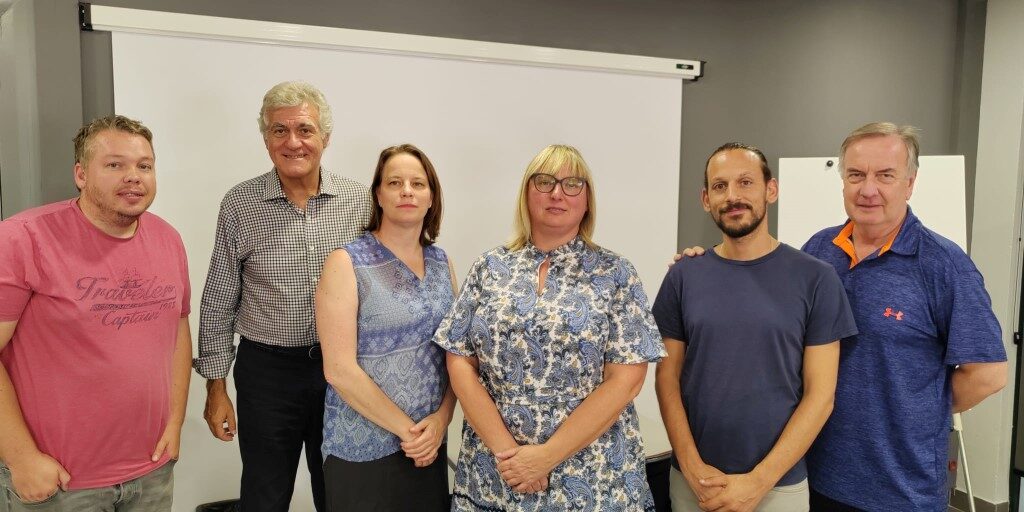YMCA Europe applies Movement Strengthening as the key approach for building capacity of National Movements in areas of governance, strategic planning, impact enhancement, human resources development and creation of new YMCAs in Europe.
The main aim of the MS Committee is to oversee the strategic vision of Movement Strengthening within YMCA Europe and agree on appropriate tools, forums and processes for the benefit of National Movements.
YMCA Europe is an umbrella organisation serving its members for the ultimate benefit of young people and their communities in Europe.
Movement Strengthening has been an integrated part of strategies, programmes and projects in YMCA Europe. During the last four years it was shaped as a separate priority. The Movement Strengthening Committee was established in 2019, the designated staff position was created to support this area.
Movement Strengthening Theory of Change
YMCA Europe believes in:
- enabling capacity building,
- relevant and sustainable impact approaches,
- education of staff and volunteers,
- networking and partnership in YMCAs.
By this we are contributing to building a European integrated civil society for young people involving them in transformational activities, promoting positive change both locally and globally.
Current Members of Movement Strengthening Committee
- Adrian Davies, YMCA Kosovo
- Anthony Camilleri, YMCA Malta
- Eneko López de Dicastillo, YMCA Europe Executive Committee
- Jenni Enqvist, YMCA Europe Executive Committee
- Jillian Law, YMCA Scotland
- Paul Smillie, Chair of YMCA Europe Movement Strengthening Committee
- Roberto Gerace, YMCA Italy
With supporting staff:
Olga Lukina, YMCA Europe Executive Secretary for Strategy and Movement Strengthening
Principles of Movement Strengthening Committee (MSC)
The MSC operates to the following principles while organising the work on Movement Strengthening:
- Engaging of National Movements to the process of self-development (no intervention without permission);
- Keeping the process simple and appealing to NMs;
- Participation of key individuals in a NM, not just 1-2 leaders;
- Long term process and holistic approach;
- Flexibility and individual approach;
- Governance development as guarantee of sustainability;
- Youth Empowerment as a focus of human resources development and succession planning;
- Building the capacity of NMs to meet the needs of their Beneficiaries.
Main Functions of the Movement Strengthening Committee
- To encourage National Movements and through their Local YMCAs to engage and participate in the process of Movement Strengthening.
- To create a strategy and platform for Movement Strengthening with a complete package of tools to support the process.
- To assist National Movements (NMs) in the early stages of their strategic planning cycle.
- To analyse Health Assessment questionnaires returned from NMs and give them feedback.
- To ensure the appropriate selection of the “Y Consultants” team.
- To visit NMs where requested and assist them in self analysis and understanding their crucial areas for development.
- To monitor and evaluate the process of Movement Strengthening and report accordingly.
- The MSC can initiate and run other initiatives in the area of programmes, studies and research to ensure an efficient and collaborative process of Movement Strengthening.
- To input into YE’s Executive Committee in agreeing any changes to the strategy on Movement Strengthening.
- To advise YE’s Executive Committee on budgetary needs.
Meetings
Meetings of representatives of MSC are organised from time to time, for instance in connection with the YE General Assembly. One yearly face-to-face meeting and up to three online meetings is recommended.
Membership
The Movement Strengthening Committee consists of 3-5 individuals (without taking into account the coordinators from the Executive Committee, the Chair and designated Staff person).
The membership should be approved annually, in the autumn of each year, by the Executive Committee and they may remove any member at any time.
The Chair of the MS Committee is appointed by the Executive Committee and can be removed at any time.







